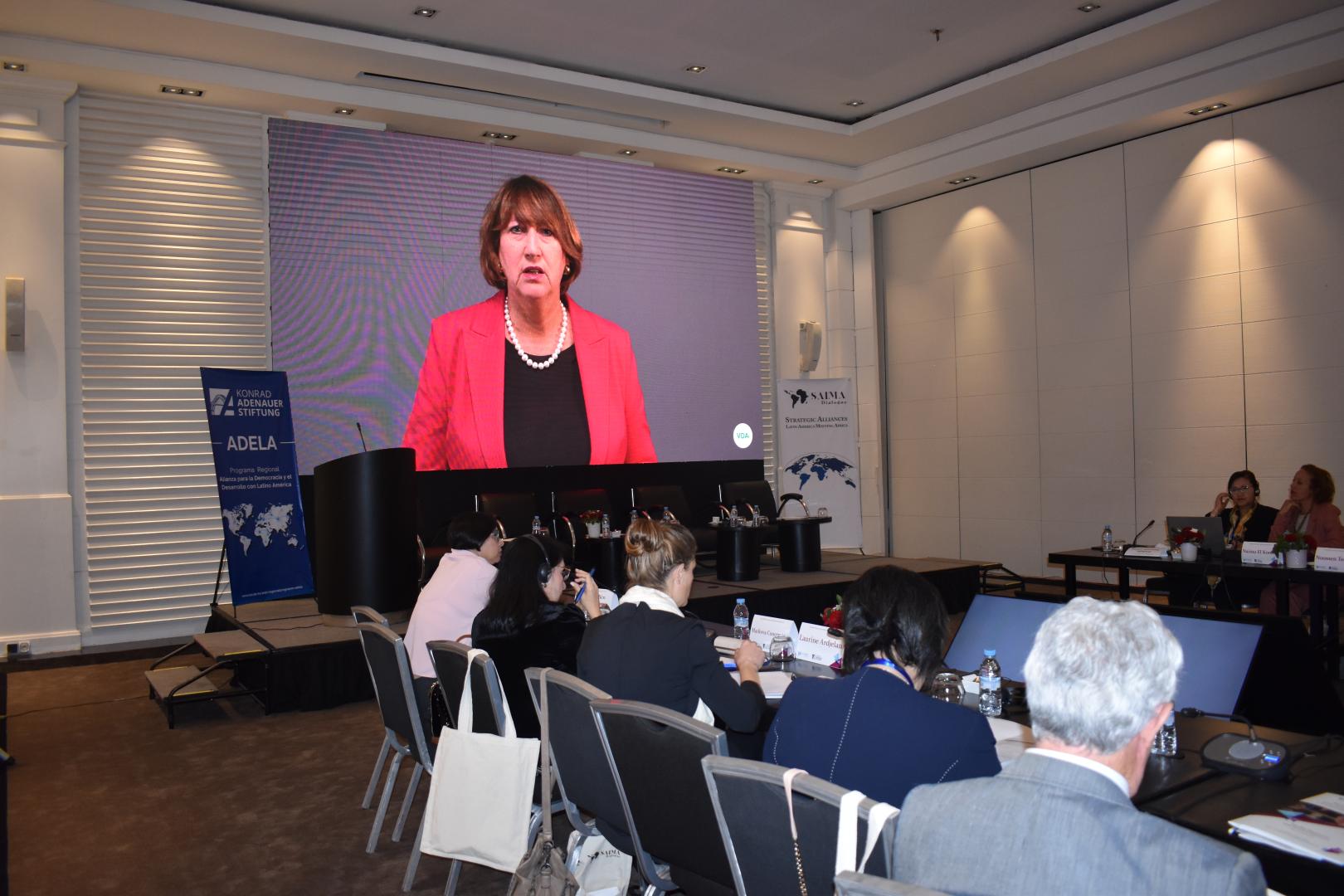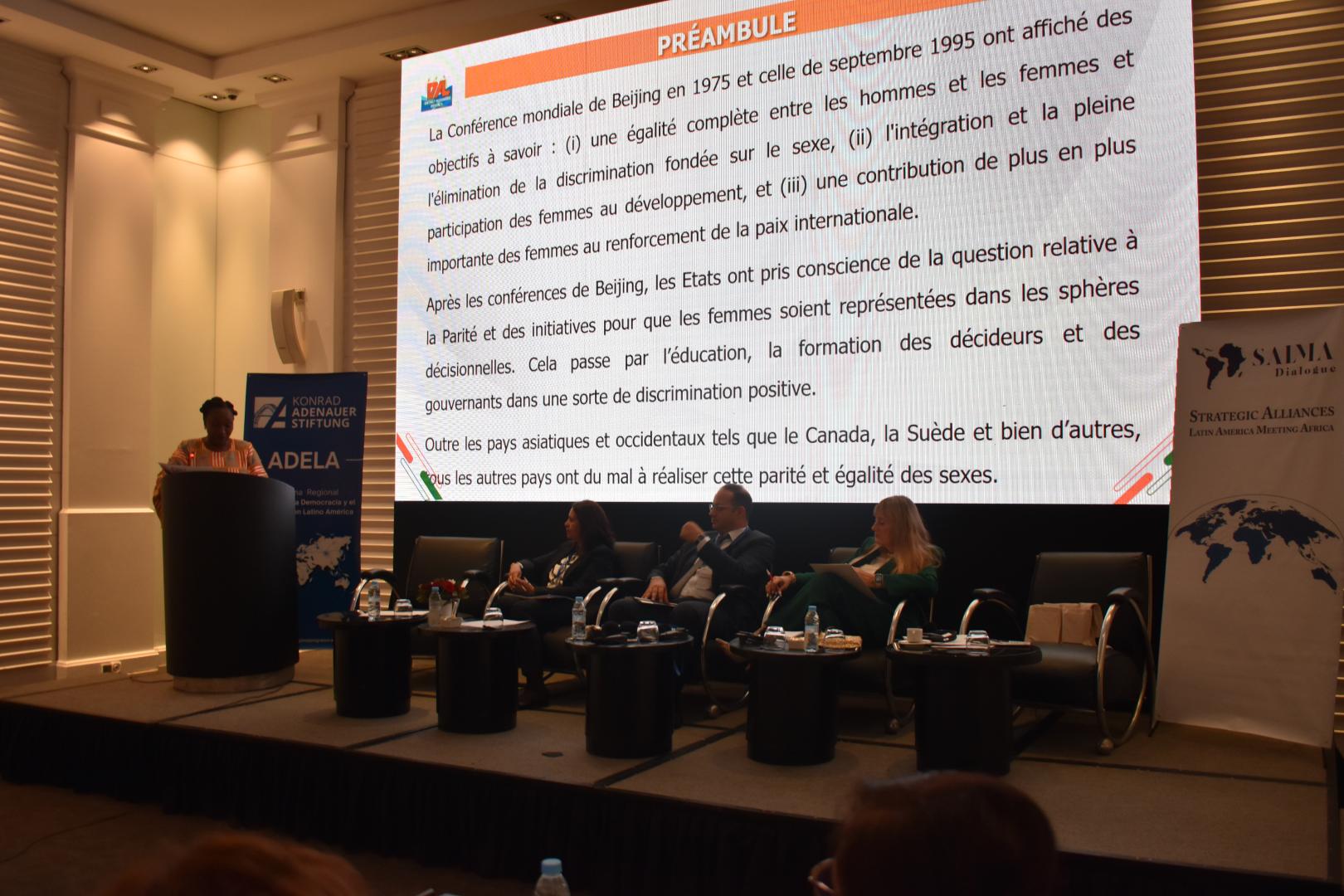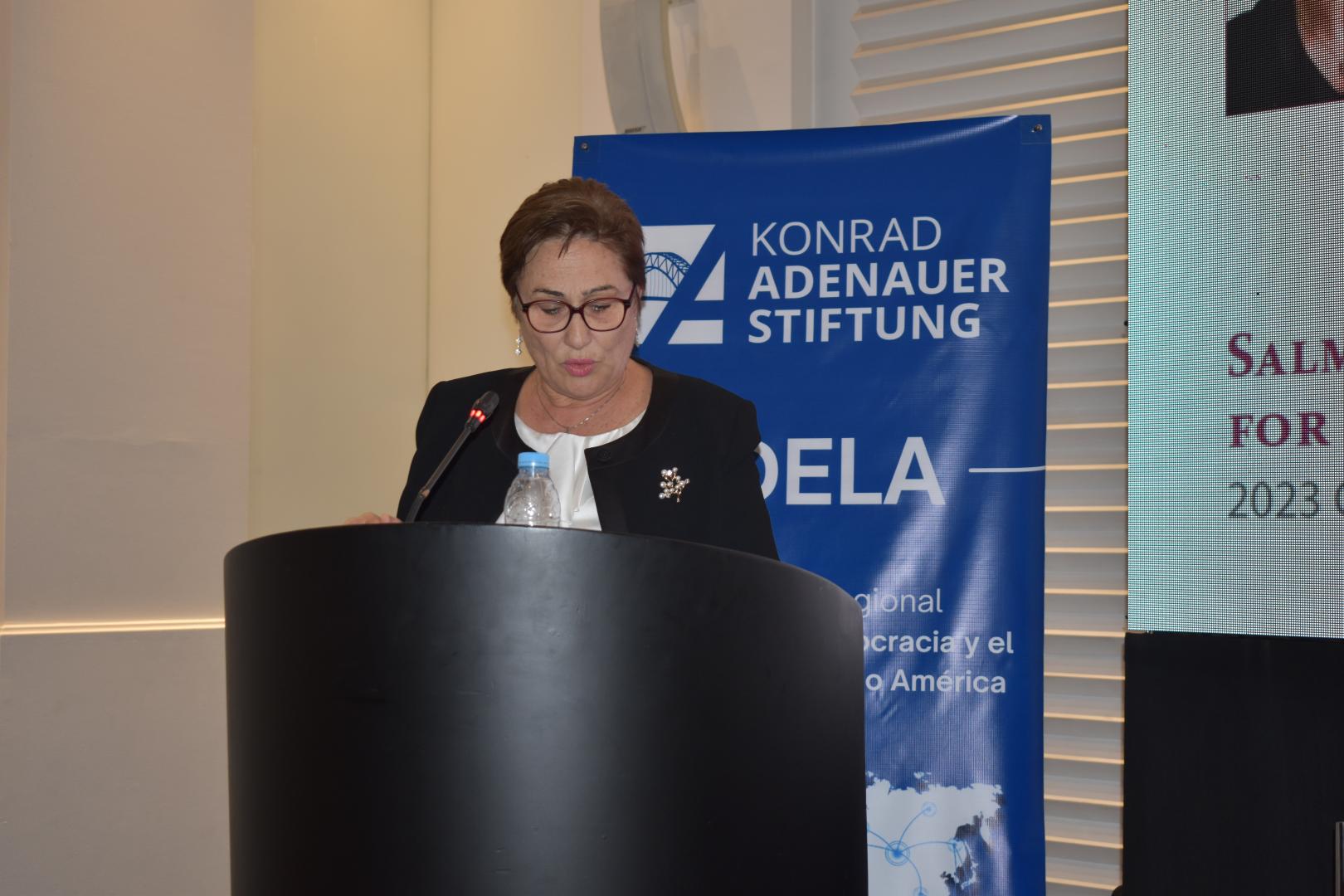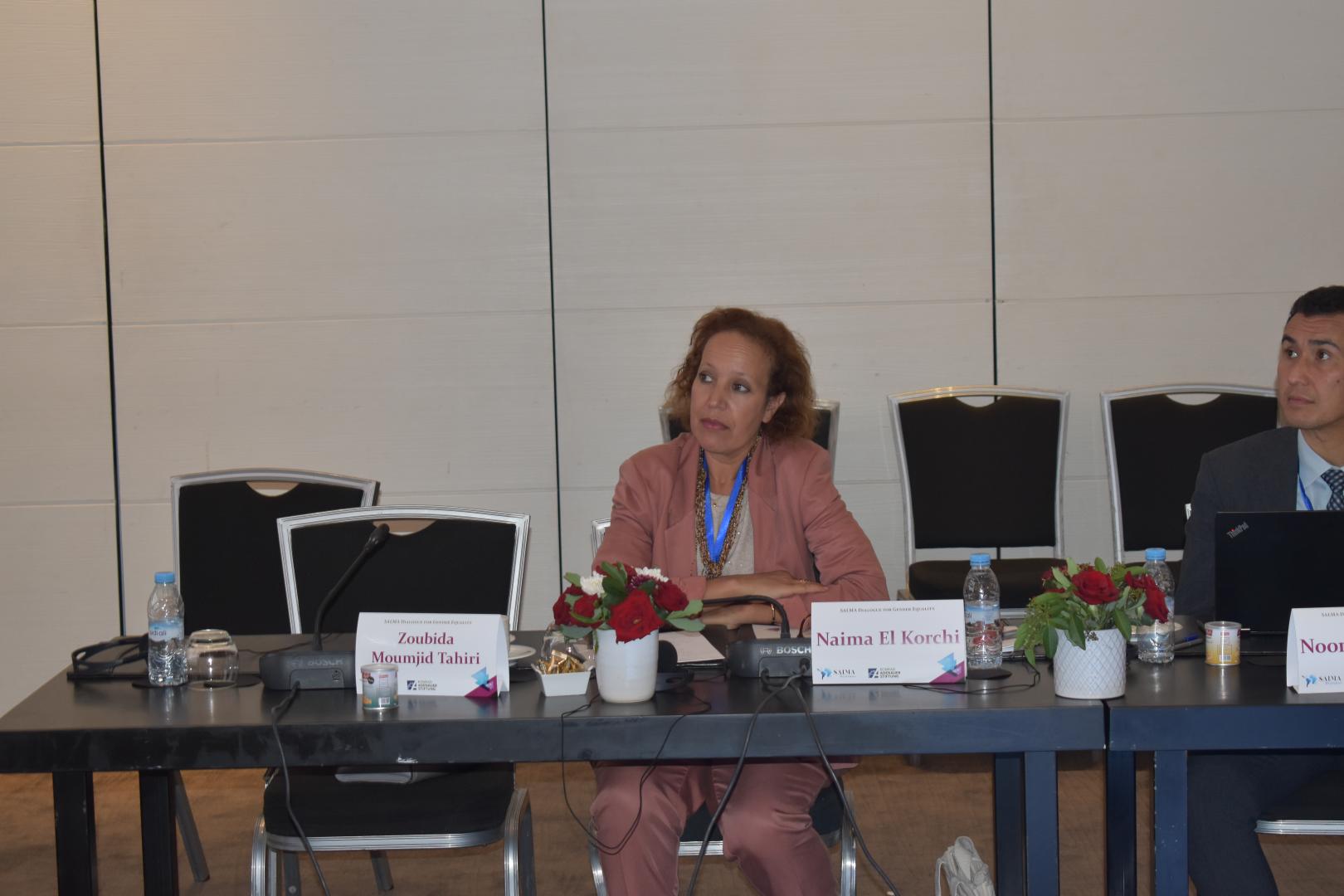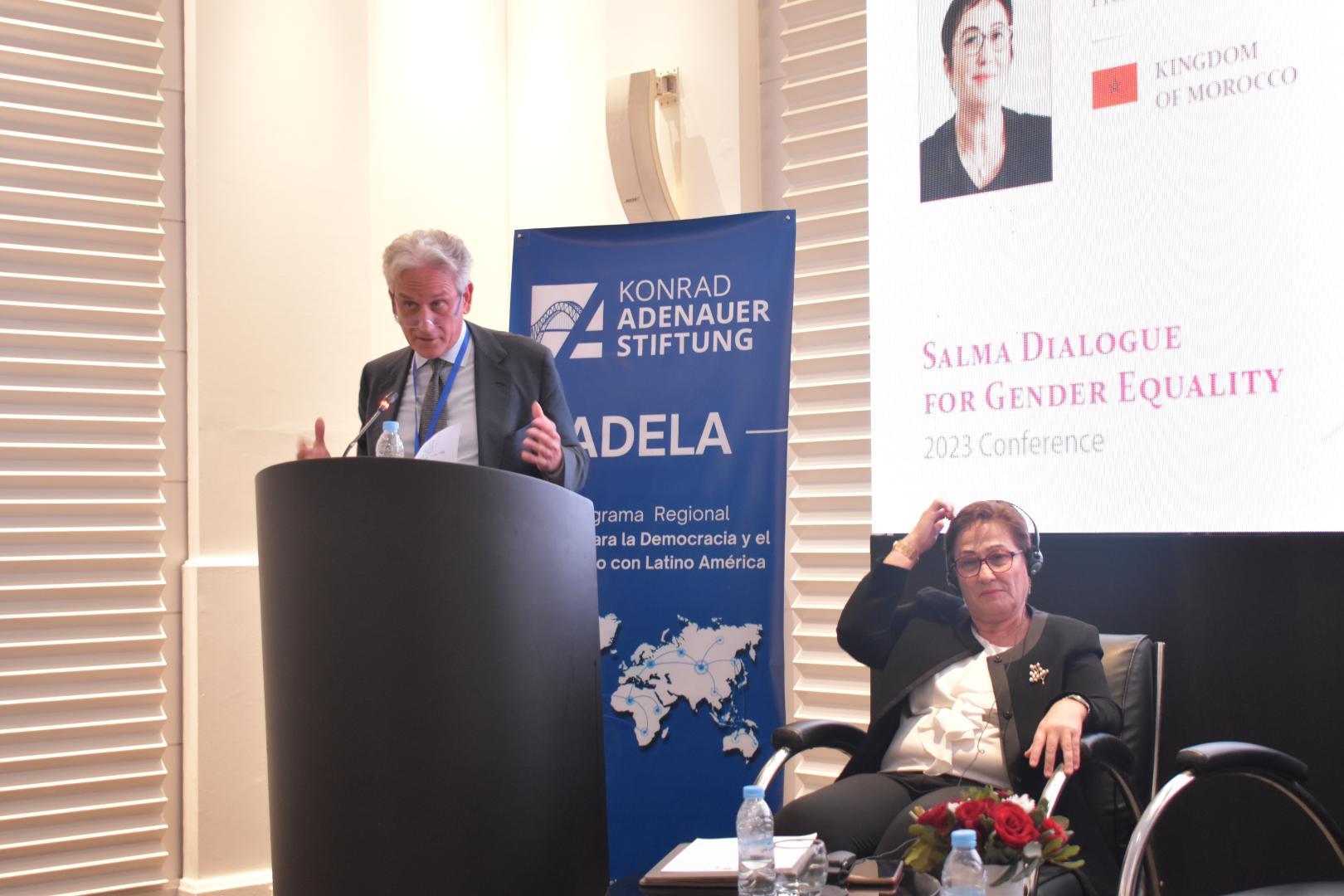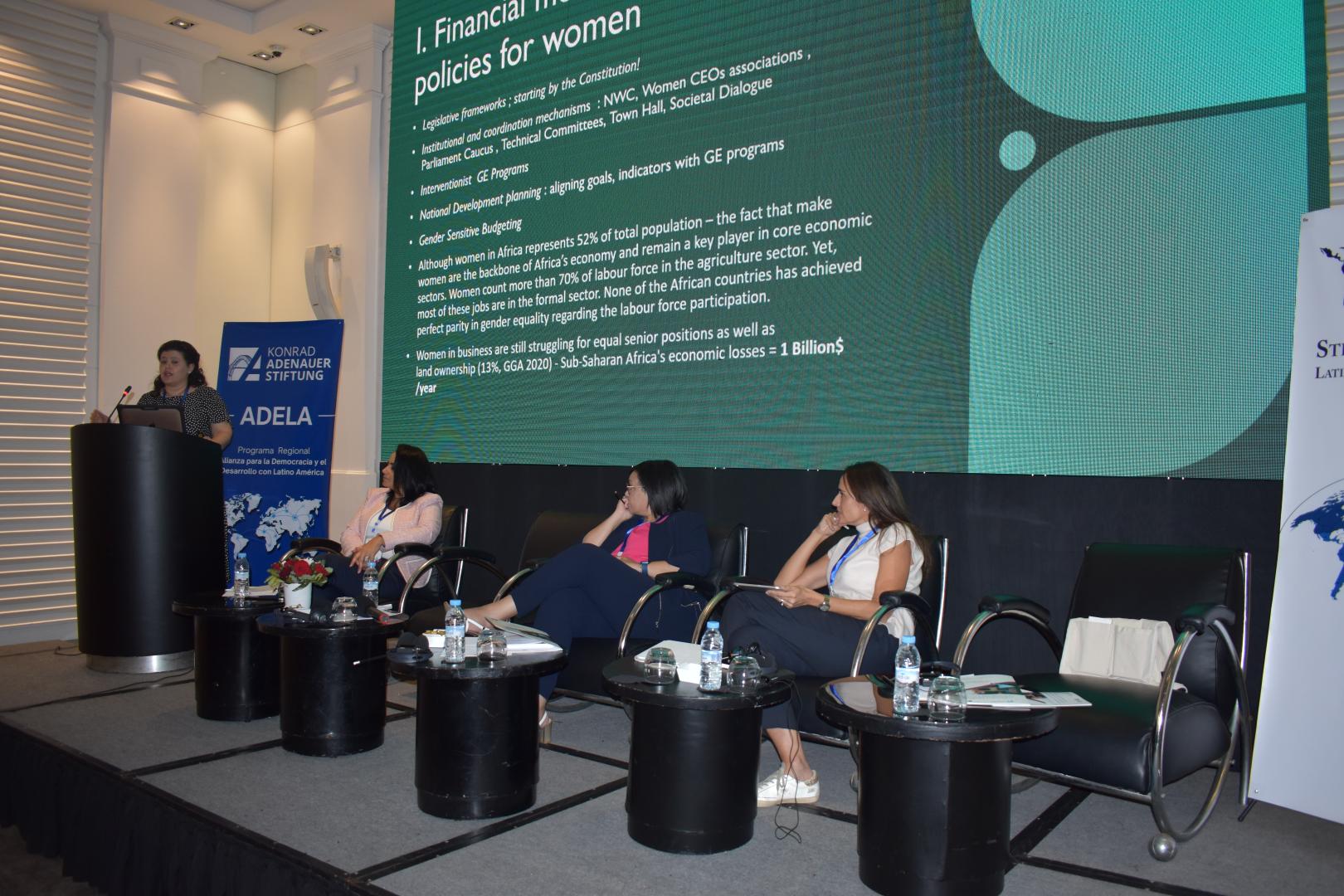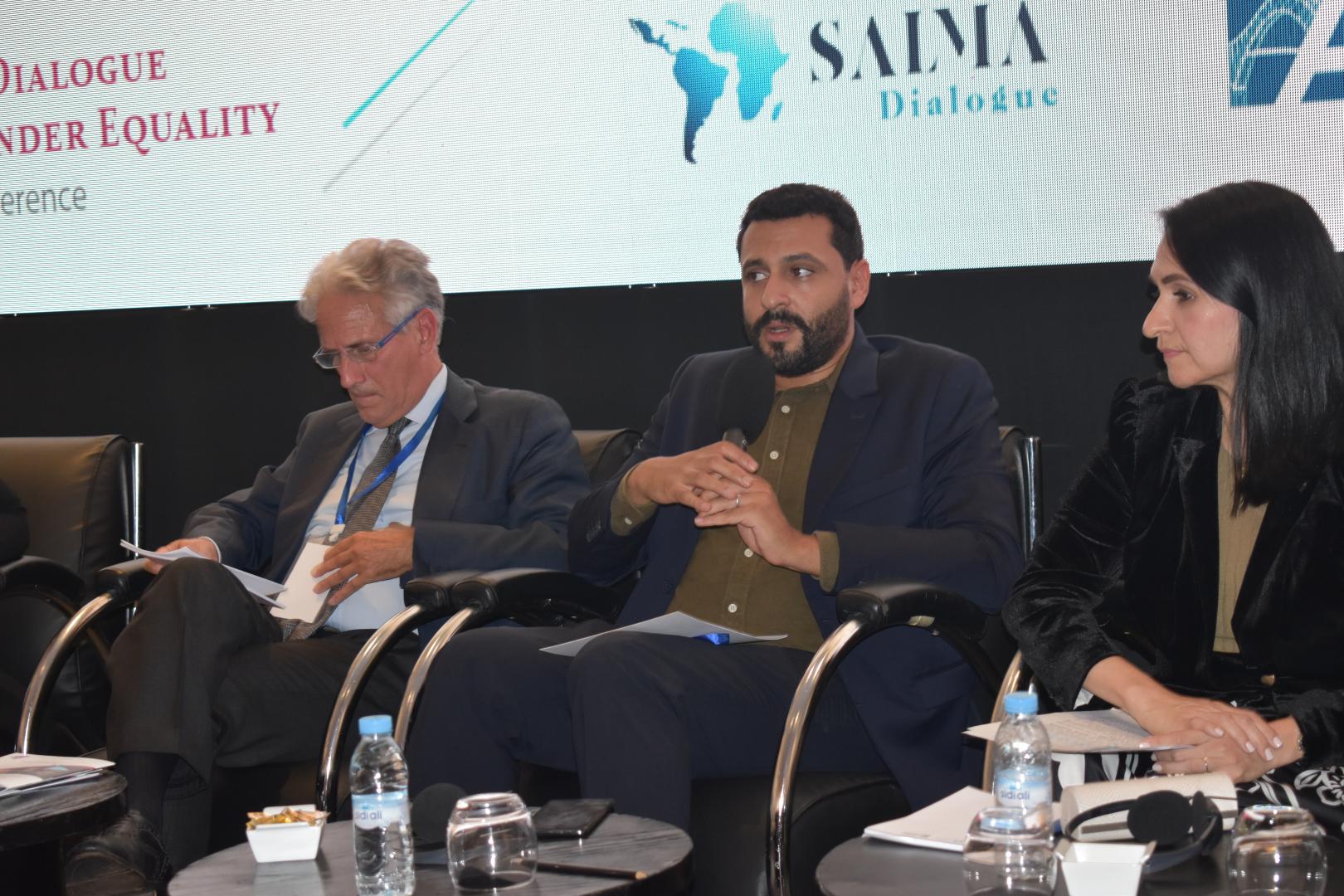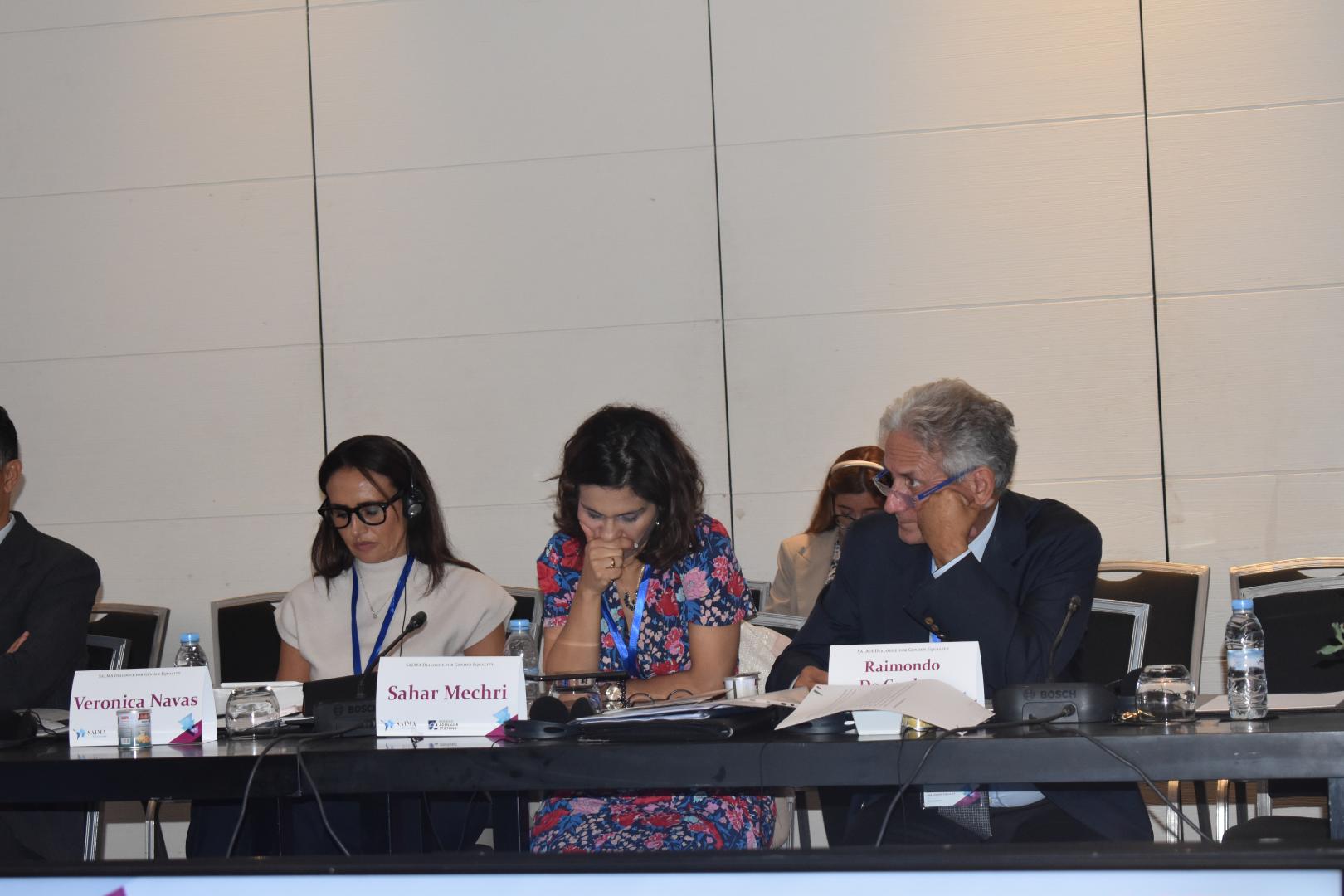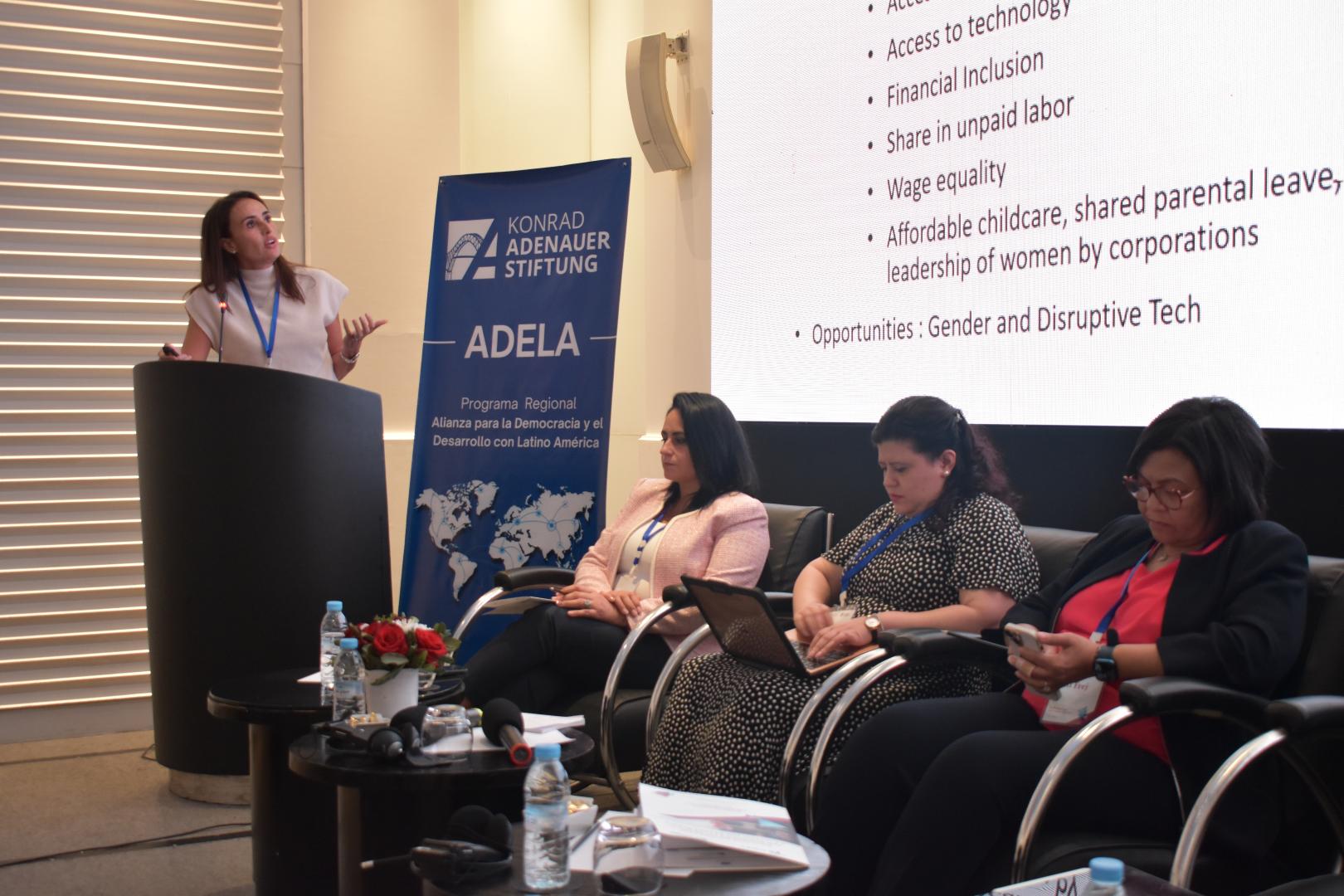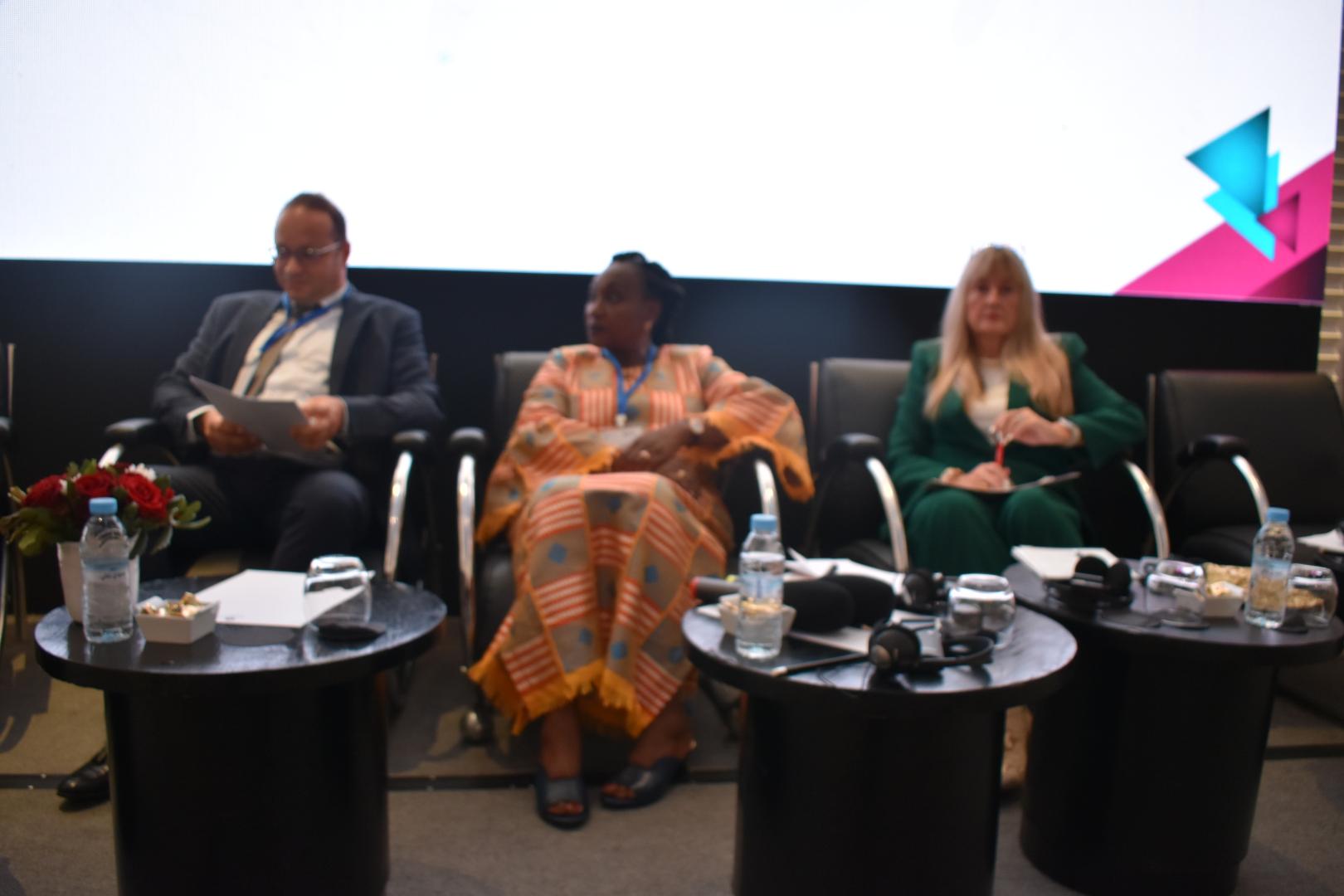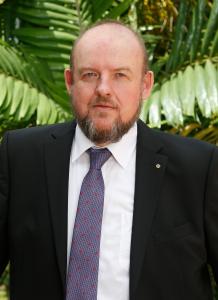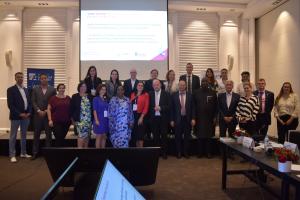Since its launch, and in the context of cooperation with the KAS ADELA program of the Konrad Adenauer Foundation, the SALMA Dialogue Program (Strategic Encounter: Latin America with Africa) has been working to create exchanges and generate high-impact synergies for countries in both regions, with contributions from Europe and North America. Focusing on the Sustainable
Development Goals (SDGs) with a cross-cutting focus on South-South and Triangular Cooperation (SSTC).
The pillars of this program are the fight against gender inequality and the promotion of women to positions of high responsibility, along with Dialogues for Peace and Security Maintenance, Improving Access to Healthcare, Innovation, and Economic Cooperation. It was in this context that the ALMA Dialogue for Gender Equality conference on "Inclusive Governance and Innovative Leadership: a
Catalyst for Gender Parity" took place from October 22nd to 25th in Casablanca, Morocco.
This report is part of the follow-up to the Gender Equality Dialogue and aims to identify areas for development in this area.
Given that the overall objective of the SALMA Dialogue program is to have a positive impact on the development conditions of stakeholders in Africa and Latin America, as well as to generate synergies through effective cooperation, a follow-up is conducted at the end of each conference.
Thanks to a group of experts in the implementation of international strategies, public policies, and finance, the follow-up work will pave the way for concrete cooperation between the various institutions and organizations represented in each of the areas addressed.
The topics addressed during the panels and working sessions covered different aspects of intervention to achieve gender parity in decision-making spheres, whether in the economic world or in politics.
Mechanisms of Inclusion and Governance: Designing Paths to Gender Parity in High Leadership Positions
The aim of the first panel was to identify ways to stimulate South-South and triangular cooperation in public policies to improve the representation of women in high-level positions. Discussions focused on exchanging best practices in this area and brainstorming possible actions to take.
- Financing for Gender Equality: Specific policies to finance women in business: The session was dedicated to establishing financing mechanisms dedicated to women entrepreneurs, studying the impact generated by such mechanisms, and means to develop them. Discussions focused on opportunities for joint financing and the implementation of public policies to promote gender financing mechanisms.
- South-South and Triangular Cooperation: Trade and Diplomacy as accelerators for gender inclusion: The panel examined the impact of economic diplomacy and international trade in the context of South-South and Triangular cooperation. Participants highlighted the crucial role of diplomacy in promoting gender equality and supporting female representation in diplomatic positions. Flagship programs such as SheTrades were mentioned, and comparable initiatives were proposed; their implementation is planned as part of the scheduled follow-up meetings.
Milestones for Gender Parity in High-Value-Added Sectors
The absence of women in high-value-added sectors can be observed in countries in Latin America and Africa, as well as in almost all developed countries. To change these trends, it is necessary to involve various actors working in high-tech activities to change hiring practices and promote inclusion. Startups, aerospace, finance, and automotive sectors driven by automotive were especially highlighted.
Stakeholder Mobilization: Building Public-Private Partnerships to close the gender gap globally.
Several partners have contributed to this panel, which has been designed to have a significant impact on gender equality and South-South and Triangular cooperation in general. Concrete steps are being taken to generate synergies through concrete actions.
Organizational structure for the implementation of follow-up and planned actions:
- Steering Committee: Composed of the focal points of each identified organization and institution. It is responsible for ensuring the proper functioning of the follow-up and planning of actions to be undertaken. Its function is to plan key dates; analyze options; decide on strategic directions; improve quality processes; communicate with key stakeholders; make decisions related to project risks.
- Management Committee: is responsible for the day-to-day management of the project. It meets monthly. More specifically, it defines when, where, and how activities will be implemented, ensuring that the organization is in line with its plan; hires the necessary resources to implement the activities properly; informs all stakeholders about progress/risks.
Conclusion
As is customary in all events organized by KAS ADELA and the SALMA Dialogue, we have counted on the contribution of high-ranking participants, giving KAS access to a diverse and highly developed international network of experts, partners, and collaborators. We had the privilege of strengthening this network with the participation of several high-level Moroccan dignitaries and officials, designated by King Mohammed VI to participate in our Gender Equality Dialogue.
The presence and active contribution of representatives from governments, states, and international organizations strengthen our teams in their position to want to engage in this program and not to spare efforts or time to ensure its development. With no less than 10 Ministers and Secretaries of State per year, a good number of presidents of national and international organizations and institutions, renowned experts, and influential regional actors involved and participating in the various organized activities, the actions taken within the framework of cooperation between KAS ADELA/SALMA Dialogue are producing the expected results, generating the anticipated impact, and benefiting from the support and strengthening received.



